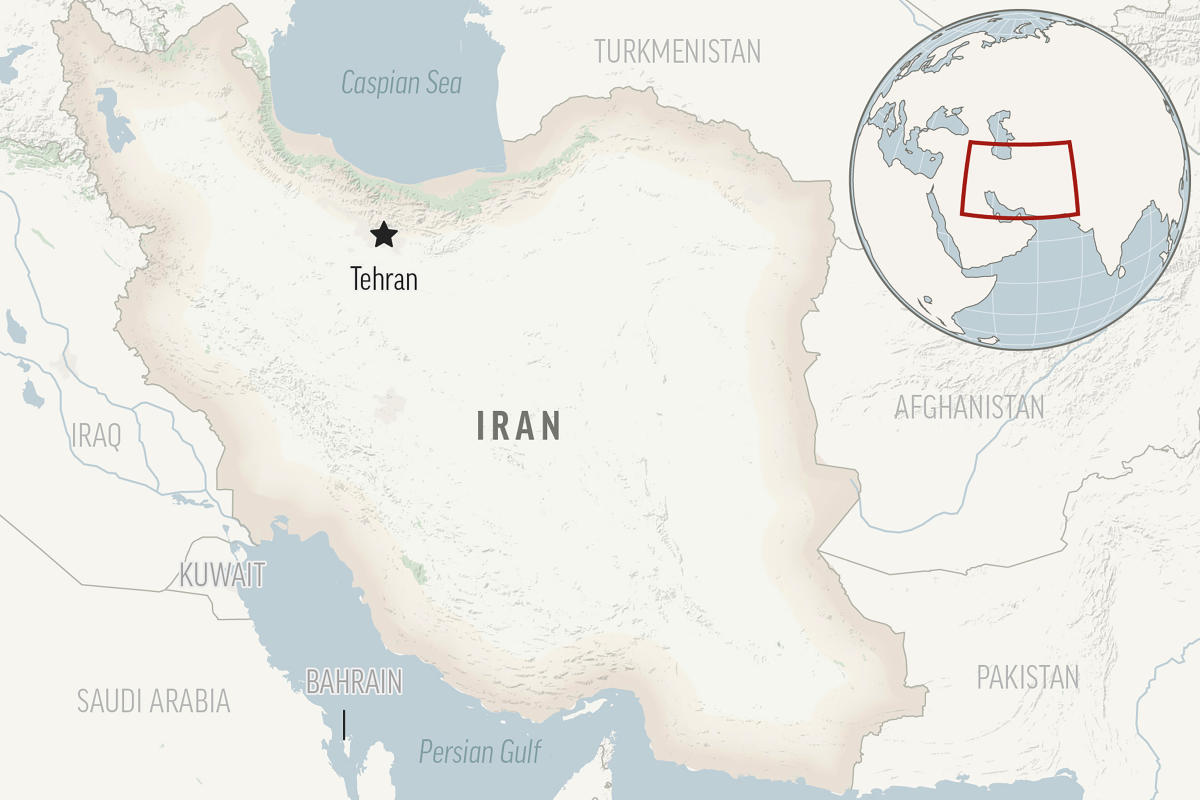DUBAI, United Arab Emirates (AP) — Iran’s parliament on Tuesday re-elected hardliner Mohammad Bagher Qalibaf as speaker, reaffirming its far-right makeup in the wake of a helicopter crash that killed the country’s president and foreign minister perished.
Of the 287 lawmakers who voted, 198 backed Qalibaf to retain the position he first took in 2021. He initially became chairman after a series of failed presidential bids and 12 years as leader of the Iranian capital, during which he built on Tehran’s metro and supported the government. construction of modern high-rise buildings.
However, many know Qalibaf for his support as a Revolutionary Guard general for the violent crackdown on Iranian university students in 1999. He also reportedly ordered live rounds on Iranian students in 2003 while serving as the country’s police chief.
In Tuesday’s vote, challenger Mojtaba Zonnouri, a hardline Shiite cleric who once headed parliament’s national security committee, won 60 votes. Manouchehr Mottaki, former foreign minister of hardline President Mahmoud Ahmadinejad, received five votes.
Qalibaf made no immediate comments after the vote. The parliamentary elections in March saw the lowest turnout since the Islamic Revolution of 1979. According to an Associated Press survey, hardliners among the elected officials have more than 230 seats in the 290 seats.
Qalibaf, a trained pilot, served in the paramilitary guard during the country’s bloody 1980s war with Iraq. After the conflict, he headed the Guard’s construction department, Khatam al-Anbia, for many years, where he led the reconstruction effort.
Qalibaf subsequently served as head of the Guard’s air force when he co-signed a letter to the reformist president in 1999. Muhammad Khatami amid student protests in Tehran over the government’s closure of a reformist newspaper and the subsequent crackdown by security forces. The letter warned that Khatami would take unilateral action against the Guards unless he agreed to put down the demonstrations.
The violence surrounding the protests left several people dead, hundreds injured and thousands arrested.
Qalibaf subsequently served as head of Iran’s police force, modernizing the armed forces and implementing the country’s emergency telephone number 110. However, in a leaked recording of a later meeting between Qalibaf and members of the Guard’s volunteer Basij force, he claimed that he had ordered gunfire to be used against protesters in 2003, and praised the violence used during the Green Movement protests in Iran in 2009.
Qalibaf ran unsuccessful presidential campaigns in 2005, 2013 and 2017, the latter of which he withdrew in support of the hardliner Ebrahim Raisi. Raisi later became president and died in the May 19 helicopter crash that also killed Foreign Minister Hossein Amirabdollahian and six others.
Iran’s parliament plays a minor role in the country’s governance, although it can increase pressure on a presidential administration when deciding on the annual budget and other major bills. Supreme Leader Ayatollah Ali Khamenei, 85, has the final say in all major state affairs.
Iran will hold presidential elections to replace Raisi on June 28. A five-day registration period for candidates opens on Thursday.






